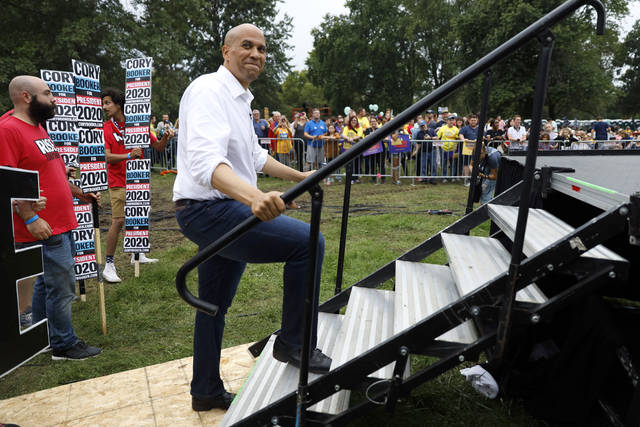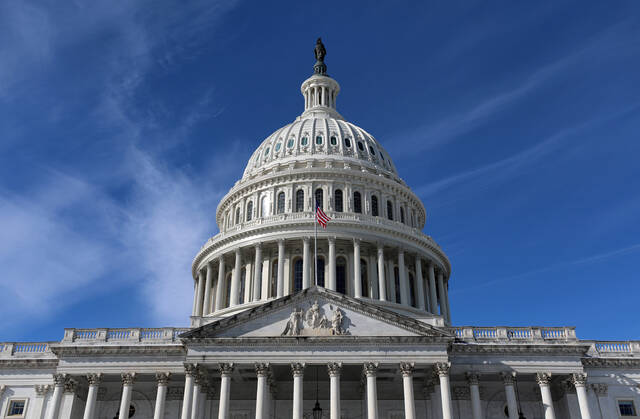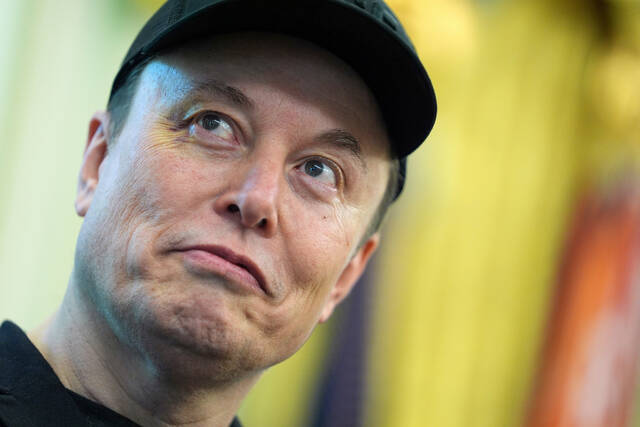The “Our diversity is our strength!” Party is starting to look rather monochromatic in its upper echelons these days.
The four leading candidates for its presidential nomination — Joe Biden, Elizabeth Warren, Bernie Sanders and Pete Buttigieg — are all white.
The six candidates who have qualified for the Dec. 19 debate — the front four, plus Amy Klobuchar and Tom Steyer — are all white.
Absent affirmative action by the DNC, neither Cory Booker, the leading black candidate for the nomination, nor Julian Castro, the leading Hispanic, will be on the stage Dec. 19.
But though there is zero racial diversity among the top six Democrats in the presidential field, there is gender, ethnic and ideological diversity.
Warren would be the first woman president; Sanders the first Jewish nominee; and Buttigieg the first gay nominee.
Yet the lack of racial diversity across the party hierarchy is going to put immense pressure on Biden, should he win the nomination. If he hopes to reunite the Obama coalition, a woman and/or person of color as his running mate would seem an absolute imperative.
And before Biden gets there, he has other problems.
His “No Malarkey” bus tour across Iowa is all about his fear that, if he loses Iowa on Feb. 3 and New Hampshire on Feb. 11, he may not survive to reach his South Carolina firewall on Feb. 25.
Nor are the other front-runners without racial-ethnic problems.
African Americans are a bedrock constituency of the Democratic Party. In recent presidential elections, they have voted 90% for the party’s nominee, and even higher for Barack Obama.
How is Mayor Pete doing with this constituency?
While running first in some polls in Iowa, his share of the African American vote in South Carolina, in a recent poll, was zero. Buttigieg had no black support in a state where African Americans constitute more than 60% of the Democratic vote.
Sanders , an unapologetic socialist who went to the Soviet Union, Reagan’s “Evil Empire,” for his honeymoon, is holding on to half of the loyal base from his impressive 2016 race against Hillary Clinton. The other half of Bernie’s base, however, has been captured by Warren. In October, she took the lead in national polls, only to lose that lead when she could not explain how, without major new taxes on the middle class, she could abolish private health insurance and put the entire country on the Medicare rolls.
And, like Bernie, she is weak with black Democrats, who will decide South Carolina one week before Super Tuesday, when 40% of all the Democratic delegates will be chosen.
How did Democrats arrive at this pass? As the 2019-20 campaign began, the party divided into two camps.
There is first the moderate- centrist-pragmatic wing, whose goal is the removal of Trump, and who will go with the Democrat who is the most certain to deliver that. Biden, who spent four decades in the Senate and as vice president, was liked by many and offended few, and was first in the polls, was their natural choice.
Then there is the ideological left of the party that wants not only to win but also to remake America. It was to this huge slice of the party that Warren and Bernie have made their radical appeals.
Now, with the arrival of moneybags Mike Bloomberg and his tens of millions of dollars in ads, almost certain to reach hundreds of millions before Super Tuesday, there is the possibility that four or five candidates will survive to the convention, with no one having a majority of delegates. And the horse-trading will begin.
My view: Super Tuesday will cut the field to two or three. And the nominee will be one of the six palefaces on the stage Dec. 19.








